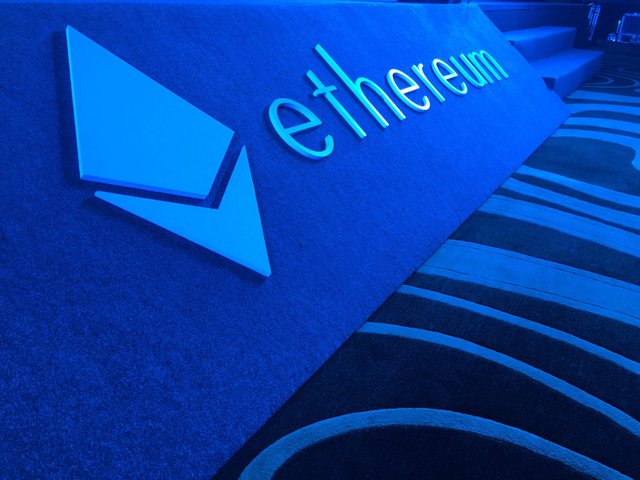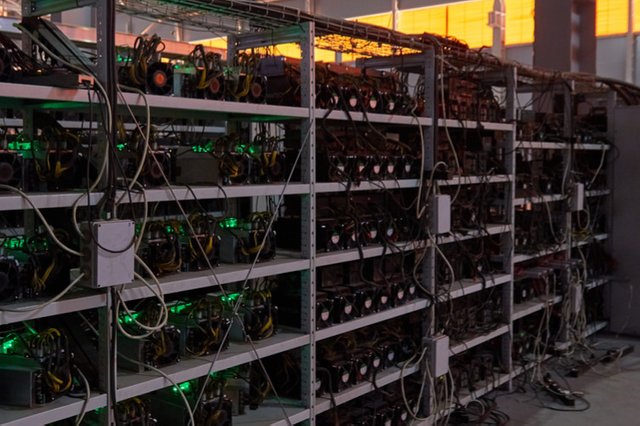Crypto News of the Day(CNOTD) - 30.10.2017
Japan’s Financial Authority Clarifies Stance on Initial Coin Offerings

The Japanese Financial Services Agency (FSA) has issued a statement regarding initial coin offerings (ICOs). In addition to risk warnings, the agency detailed how two existing laws may apply to token sales.
FSA Warns of ICO Risks
Japan's Financial Authority Clarifies its Stance on Initial Coin OfferingsJapan’s FSA published a statement on Friday, clarifying its position on ICOs. The agency first warned the public of two risks applicable to ICO investors.
The first risk concerns price volatility, which the agency cautioned, “the price of a token may decline or become worthless suddenly.” The second risk is “potential for fraud.” The FSA warned that goods and services outlined in ICOs’ whitepapers may not be realized, adding that:
You should have a deal [invest] at your own risk only after understanding enough the risks above and the content of an ICO project if you buy a token. You should also pay careful attention to suspicious solicitation of ICOs.
Two Existing Laws May Apply
Although Japan has no specific laws for ICOs, they may be regulated by two existing laws. For businesses launching an ICO, the FSA emphasized:
ICOs may fall within the scope of the Payment Services Act and/or the Financial Instruments and Exchange Act depending on how they are structured.
Japan's Financial Authority Clarifies its Stance on Initial Coin OfferingsIf a token issued in an ICO falls under the virtual currency provisions of the Payment Services Act, then businesses providing digital currency exchange services regularly “must be registered with each Local Finance Bureau that is the delegated authority to the Prime Minister,” the FSA wrote. So far, eleven cryptocurrency exchanges have been approved by the agency.
However, “if an ICO has the characteristics of an investment, and the purchase of a token by a virtual currency is practically deemed equivalent to that of legal tender, the ICO becomes subject to regulations under the Financial Instruments and Exchange Act,” the agency described.
Chinese bitcoin exchanges are reportedly trying to move their ICO businesses to Japan. According to theleading Japanese bitcoin exchange Coincheck, the company has received “hundreds of requests from Chinese startups and startups around the world asking us to list their tokens, after the Chinese government banned ICOs,” the exchange revealed.
30% of Bill Miller’s Hedge Fund Is Invested in Bitcoin

Bill Miller, former chairman of Legg Mason Value Trust mutual fund, and current chairman of Miller Value Partners LLC, has revealed that bitcoin holdings comprise approximately 30% of the assets in Miller Value Partner’s MVP 1 hedge fund.
The Share of Bill Miller’s Hedge Funds’ Assets Invested in Bitcoin Has Gone From 5% to 30% in Just 12 Months
30% of Bill Miller's Hedge Fund Is Invested in BitcoinIn a recent interview with The Wall Street Journal, Bill Miller has revealed that roughly 30% of the assets in Miller Value Partners LLC’s $154 million USD MVP 1 hedge fund are invested in bitcoin. The share of the fund’s total that is represented by bitcoin holdings has significantly increased following bitcoin’s price gains of approximately 600% this year – as bitcoin represented just 5% of MVP 1’s assets in 2016. Mr. Miller states that the MVP 1 hedge fund has gained in value by approximately 72.5% so far during 2017.
In a letter sent to investors last week, Mr. Miller estimated that the average price paid for the fund’s bitcoins was approximately $350 USD per coin. Although Mr. Miller has stated that the fund will not purchase any additional bitcoin at current prices, he is reported to have said that he would be willing to “put 1% of [his] liquid net worth” into bitcoin if he were not privately exposed to the bitcoin markets.
In June of this year, Mr. Miller described bitcoin as a “true disruptor and true innovation in money.”
Show of Force: Ethereum Gears Up for Devcon3 Developer Conference

Ethereum is out to prove itself at its annual developer event, set to begin next Wednesday.
Once arguably the most active corner of the booming cryptocurrency market, it's safe to say enthusiasm for the project has cooled, if only by comparison. Despite meteoric growth that has seen the protocol rise to $29 billion in value, not to mention hundreds of ICO projects launch using its technology, ethereum may be underperforming against its own high expectations.
That's because to many supporters, the project, launched in 2014, had seemed destined to become the first to pass bitcoin in market value (and other key metrics) this year. And while there was a big run in June, the so-called "flippening" never came to pass.
Still, suggestions the protocol is struggling are only surface level, according to those involved.
"I think they are hitting on all cylinders," author William Mougayar, who advises the non-profit Ethereum Foundation, told CoinDesk. "It's a real platform with several pieces on top."
Ahead of Devcon3 this week, being held in Cancun, Mexico, attendees are also hoping for a strong showing of technical talks and project updates that demonstrate the protocol's progress.
Speaking to this restlessness was ConsenSys head of global business development Andrew Keys, who voiced his hope that the conference can show to the world the pace of development that is ongoing in the ethereum technical community.
Developer Hudson Jameson, employed by the non-profit Ethereum Foundation, stated that the event was designed not to be an "ICO-fest," words denoting the backlash that's growing as more projects seek to leverage ethereum in fundraising (and not always to positive headlines).
Rather, Jameson said he expects the conference to serve as a forum for technical discussion, with time spent examining the state of efforts aimed to make ethereum more private and more scalable.
Ethereum's recent upgrade Byzantium, one of the largest-ever updates to the platform, brought improvements to the blockchain, but there was still a lot it didn't do.
Still to be achieved are long-promised shifts, such as the migration to a more eco-friendly and egalitarian mining protocol, and top-level applications that make the technology easier to use.
In this way, National University of Singapore computer science Ph.D. candidate and Kyber Network co-founder Loi Luu argued the fork, while successful, didn't meet expectations across the board.
"I think many people were not happy with the recent hard fork since it wasn't significant enough," he said.
Further, it took longer than expected for the not-quite-revolutionary change to occur. First, Byzantium was divided into two upgrades to make developers' jobs easier, then the first fork was delayed.
Others, however, were keen to write off any complaints. Gnosis co-founder and developer Stefan George said he was happy that the fork "finally happened," arguing hat it lays the groundwork for the project's goals.
Along those lines, developers stressed that ethereum's weaknesses will be a point of focus at Devcon3. Scalability is one of the biggest hurdles – after all, if all goes according to plan, ethereum would like its applications to replace centralized services like Facebook some day.
Luu stressed the need for more research in this area, expressing hopes that Devcon3 will help galvanize work toward that goal.
"Ethereum is getting more mainstream now, people are expecting some scalability solution to be deployed real soon," he said.
Notably, developers of proposed scalability solutions such as Raiden Network and TrueBit will be speaking at the conference, providing updates on their state of progress.
Also putting pressure on the talks will be the perceived need for developers to move quickly in line with the expectations of the market.
George, for one, cited Dfinity – another blockchain billing itself as a "world computer" – as one he'll be looking out for in 2018, but he foresees that there could be others. Still, he argued that rival platforms could be beneficial for the platform, potentially forcing ethereum's global community into action.
He concluded:
"Serious competition will be good."
Bitcoin Cash: Suddenly in the Spotlight for Investors and Mining Pools

Bitcoin Cash showed a pattern in the past weeks- miners only produced blocks when the difficulty was low. But in the past days, big mining pools supported Bitcoin Cash ahead of the potential SegWit2X hard fork for Bitcoin in November.
While support for SegWit2X seems to be lower, Bitcoin Cash suddenly looks more appealing. Investors and mining pools have warmed up to the alternative blockchain, lifting both market price and block production.
Bitcoin Cash already has large transaction blocks and as the uncertainty around the SegWit2X upcoming blockchain are thickening, miners may join the coin that already exists and has a reasonable acceptance with exchanges, wallets, users, and merchants.
Bitcoin Cash currently trades at $440.92, up more than 35% in a week, going as far up as $500. Previously, when Bitcoin rose, BCH coins sank, but now the trend has changed.
Mining pools are also warming up. Previously, a single entity mined most blocks when mining was unprofitable. But the picture has changed, as several SegWit2X supporter pools flocked to the network with larger blocks:
The only exception is F2Pool, which recently withdrew its support from SegWit2X signaling.
The presence of so many miners also means that Bitcoin Cash blocks are coming every ten minutes, instead of an hour apart. And there are not too many miners, producing one-minute blocks. Currently, the Bitcoin Cash chain is not too far ahead of the Bitcoin chain, having recovered from periods of too many miners and low difficulty. Over the weekend, Bitcoin Cash also experienced network delays, as the Exodus wallet team noticed, slowing down the in-wallet exchange:
"Because the network is going so slow we have seen exchange times finishing between 6 - 12 hours. All exchange will finish, they are just taking MUCH longer than expected."
There has been talk of Bitcoin Cash being "the real Bitcoin". And with the recent arguments that the heft of miners can make or break a coin by producing the longest blockchain, some still believe Bitcoin Cash has a chance of not merely being an altcoin.
Bitcoin Cash has been recently added to the Exodus wallet. OKEx, the Korean exchange, has been flexible enough to add futures trading Bitcoin Cash. But Grayscale Investments does not plan to hold onto its Bitcoin Cash, instead selling and spreading the proceeds to the investors in its Bitcoin fund.
Thanks for reading.